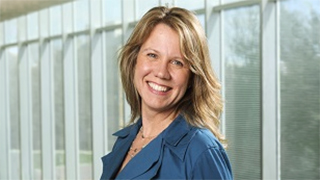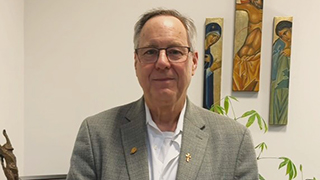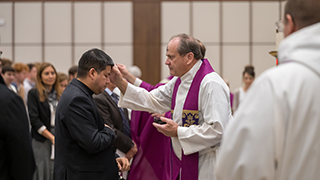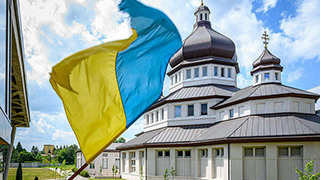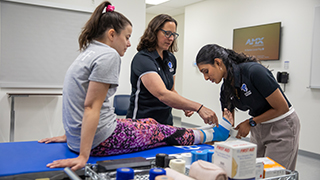UN Veteran Craig Jenness Brings Global Diplomacy Experience to Seton Hall Classrooms
Monday, November 10, 2025
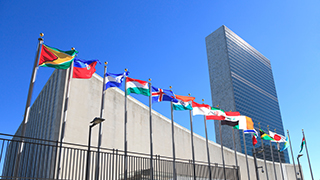 This semester, the School of Diplomacy and International Relations welcomes Craig Jenness, a visiting scholar whose distinguished career with the United
Nations offers students an authentic view into international diplomacy. Having served
as Director of the UN Electoral Assistance Division and led missions across more than
50 countries, Jenness brings decades of experience in conflict resolution, electoral
integrity and peacebuilding to Seton Hall’s classrooms.
This semester, the School of Diplomacy and International Relations welcomes Craig Jenness, a visiting scholar whose distinguished career with the United
Nations offers students an authentic view into international diplomacy. Having served
as Director of the UN Electoral Assistance Division and led missions across more than
50 countries, Jenness brings decades of experience in conflict resolution, electoral
integrity and peacebuilding to Seton Hall’s classrooms.
Jenness’s path to international affairs began unexpectedly. Before he became a seasoned UN electoral expert, Jenness worked as a lawyer in Ottawa. His path changed when a friend in the UN mission to Cambodia reached out about an urgent staffing need before the country’s postwar elections. “I applied and was lucky enough to be chosen,” he said. “Not - I learned later - because I was the best candidate, but because the need was urgent and I was one of the few that promised I could be there in 10 days.”
That short-term assignment became a fruitful career. The experience of watching Cambodians rebuild their lives after years of conflict left a lasting impression. “The bravery and dignity of so many Cambodians trying to rebuild their lives and their country after the horrors they had gone through was inspiring,” Jenness recalled. One memory stands out vividly: an elderly woman walking five miles through heat and dust to cast her vote for the first time. “She said, very quietly and simply: ‘I had two sons. They were both killed in the war... I think that if I vote, there will be peace and other mothers won’t lose their children like I did.’” For Jenness, that moment captured the essence of why this type of work matters.
His career would take him far beyond Cambodia, including to Bosnia, Kosovo, North Macedonia, Iraq and Venezuela. As director of the UN Electoral Assistance Division, he oversaw global electoral operations in more than 50 countries each year, leading a team that supported governments and citizens trying to build fair, transparent and peaceful political systems.
Jenness looks back on his time at UN Headquarters in New York as both challenging and deeply meaningful. “The complex diplomacy, the challenging realpolitik, the maddening bureaucracy were all part of trying to support 193 member states - all in a way our ‘bosses’ - to take collective action on some of the world’s greatest problems,” he said. “We did many things that had no impact at all. But we did a lot of things - often quietly - that I hope made some difference.”
From helping former Secretary General Kofi Annan mediate Kenya’s 2007-08 election crisis to witnessing Bosnian Muslims and Serbs sit together in the aftermath of the Srebrenica massacre, Jenness’ stories are reminders that diplomacy often happens in quiet moments of courage and reconciliation. “The best diplomats I have met have been humble and empathetic,” he reflected.
Now, as a visiting scholar, Jenness brings those insights into Seton Hall’s School of Diplomacy’s classrooms. “Young people are our hope,” he said. “I truly believe in diplomacy, multilateralism and in the promise of the UN, despite its shortcomings.” For Jenness, teaching is not a retirement from service, but a continuation. “If I could help you a little bit, if only to avoid some of my generation’s mistakes, I would be proud to do so.”
When asked what advice he gives to students pursuing international affairs, his message is simple but powerful: “Believe. You may not change the world, but you can make a difference,” and “it is better to light a candle than to curse the darkness.” Through his work and now his teaching, Craig Jenness embodies precisely that, lighting the way for future diplomats to continue the ideals of peace, compassion and perseverance.
Categories: Nation and World


